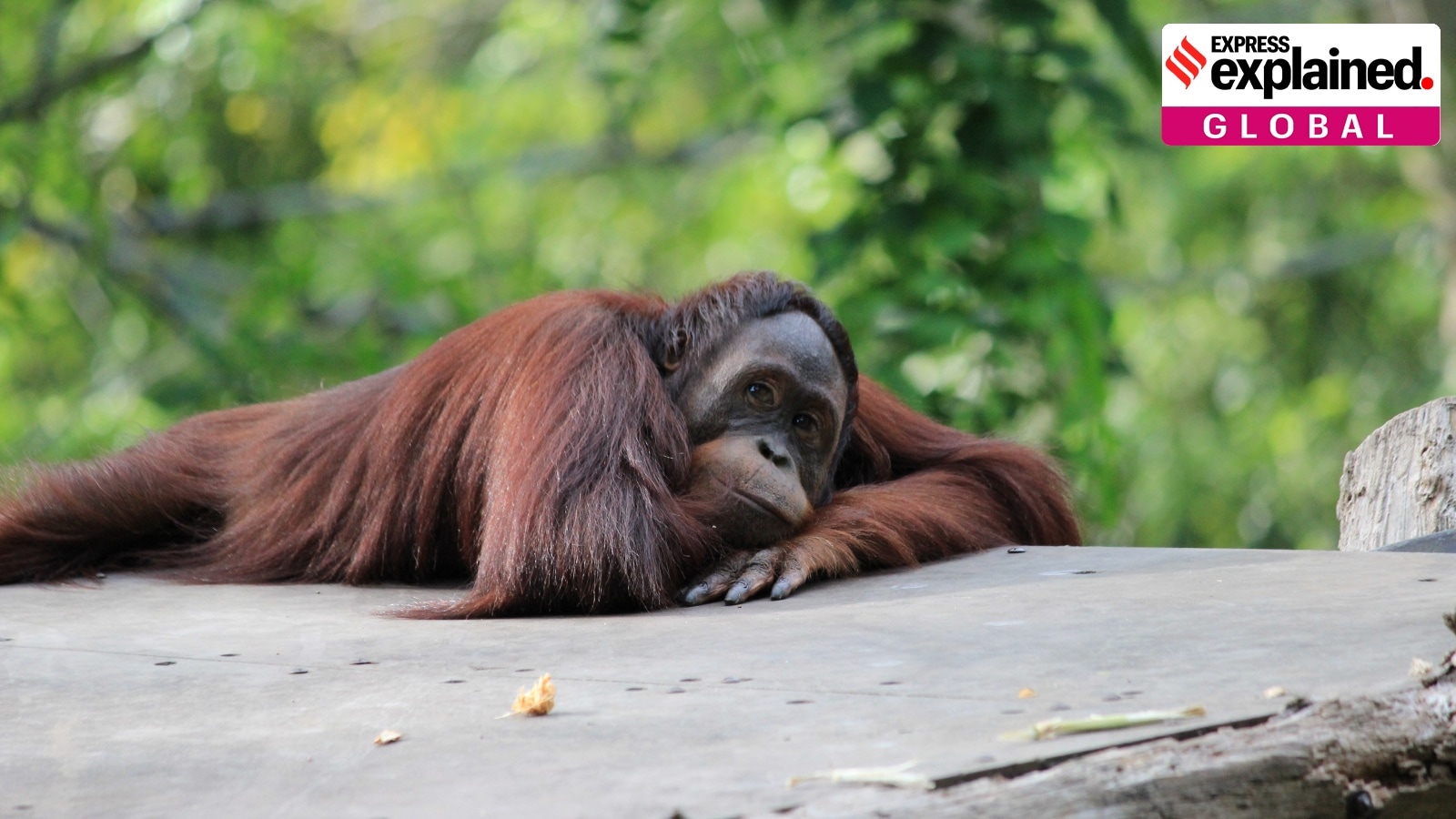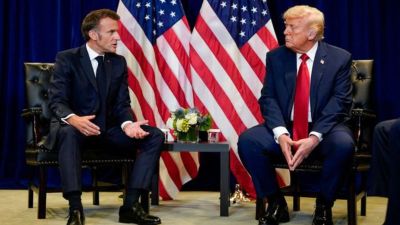Why has Malaysia tweaked its ‘Orangutan diplomacy’?
Malaysia, the world’s second-largest palm oil producer, has been under immense pressure to make its palm oil industry more sustainable. The industry has been linked to deforestation, causing the loss of habitat for orangutans.
 Currently, the orangutan population stands at about 120,000 and is threatened by rapid deforestation primarily due to palm oil plantations, according to a report by the World Wildlife Fund. (Wikipedia Commons)
Currently, the orangutan population stands at about 120,000 and is threatened by rapid deforestation primarily due to palm oil plantations, according to a report by the World Wildlife Fund. (Wikipedia Commons)Malaysia’s Plantation and Commodities Minister Johari Ghani on August 18 tweaked his earlier proposal of sending critically endangered orangutans as gifts to palm oil-purchasing countries. According to the latest proposal, importers of Malaysian palm oil will be offered to “sponsor” one or more orangutans and the funds will be used for their conservation within Malaysia — instead of sending the adopted primates aboard.
Ghani revised his policy after it faced widespread criticism, especially from wildlife conservationists who called it “obscene” and “repugnant”.
Why was this policy proposed? Why was it criticised?
‘Orangutan diplomacy’
Ghani first announced his plans to gift orangutans to palm oil-buying countries in May this year, saying the policy was inspired by China’s “panda diplomacy” — the practice of sending pandas from China to other countries as a tool of diplomacy and wildlife conservation.
Malaysia, the world’s second-largest palm oil producer, has been under immense pressure to make its palm oil industry more sustainable. The industry has been linked to deforestation, causing the loss of habitat for orangutans.
These apes are found in the rainforests of the islands of Borneo and Sumatra — shared by Malaysia, Indonesia, and Brunei. Currently, the orangutan population stands at about 120,000 and is threatened by rapid deforestation primarily due to palm oil plantations, according to a report by the World Wildlife Fund.
With his proposed “orangutan diplomacy”, Ghani wanted to alleviate concerns regarding the impact of palm oil production on orangutans. While making his policy public, the minister said, “Malaysia must not take a defensive stance on palm oil… Instead, we have to show the world that Malaysia is a producer of sustainable palm oil and is committed to safeguard forests as well as environmental sustainability.”
Notably, his announcement came not long after the European Union banned the import of goods linked to deforestation.
The criticism
The animal welfare groups severely criticised Malaysia’s initial strategy, saying it was hypocritical to destroy forests (for palm oil production) where orangutans live and give them as gifts in exchange for “getting favours” from trading countries.
“Protecting the forest, which is the natural habitat of orangutans, is the most important step that needs to be taken,” the organisation Justice for Wildlife Malaysia told The Guardian.
In an interview with CNN in May, Stuart Pimm, chair of conservation ecology at Duke University, said that there was a huge difference between Malaysia’s proposed “orangutan diplomacy” and China’s “panda diplomacy”.
“China has state-of-the-art facilities for pandas and more importantly, has established protected areas that safeguard wild panda populations. What Malaysia’s government is proposing is hardly anything comparable,” he said.
Under the revised scheme, Ghani said orangutans would be kept in their natural habitats and the funds received by their sponsors would be used for conservation programs. The programs would include “collaborating with a team of rangers, comprising experts, to monitor the presence, safety and condition of these wild animals,” he said.
- 01
- 02
- 03
- 04
- 05






































